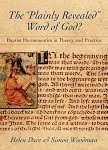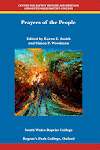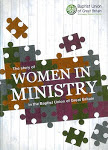Provoking Faith in a Time of Isolation - 29th November 2020
Advent 1
Daniel 6.6-27
In the middle of the most recent lockdown,
media
headlines were reporting the news
that a
group of church leaders were taking the government to court.
More than 100 Christian leaders have launched a legal challenge against the ban on communal worship in England under lockdown restrictions.
They claim worship has been “criminalised” and the ban has “inflicted a terrible human cost” on congregations for whom collective worship is a core element of their religious life.
The restrictions on public worship, they argue, breach article 9 of the European convention on human rights which protects the right to freedom of religion.
The claim for judicial review by 122 church leaders from different traditions is being supported by the Christian Legal Centre, an arm of the conservative evangelical organisation Christian Concern.[1]
Well, I perhaps ought to admit that I often find Christian
Concern quite useful
because if
I haven’t quite worked out what I think about something,
I can take a look at whether they’ve said anything about it,
and if they
have, I can be fairly sure that I’ll think the opposite!
Whilst, at a superficial level, it might be tempting
to draw an
analogy between Daniel’s defiance of King Darius
and the
wilful breaking of lockdown rules by some church leaders,
I think this is to trivialise the question that the story
raises for us,
which is
the deep and profound question of religious liberty.
The guidance related to Article 9 of the European convention
on human rights
is a long
and detailed document.
I looked it up, and it runs to 98 pages,
with a huge
level of nuance and case law.[2]
But the headline paragraph, the ‘article’ itself,
is fairly short, so let’s hear it now:
1. Everyone has the right to freedom of thought, conscience and religion; this right includes freedom to change his religion or belief and freedom, either alone or in community with others and in public or private, to manifest his religion or belief, in worship, teaching, practice and observance.
2. Freedom to manifest one’s religion or beliefs shall be subject only
to such limitations as are prescribed by law and are necessary in a democratic
society in the interests of public safety, for the protection of public order,
health or morals, or for the protection of the rights and freedoms of others.
Well, I think that put’s Christian Concern back in its box,
given that
we’re in the middle of a pandemic!
Now, don’t get me wrong, I’m as frustrated as the next
person by some of the rules:
for example
I simply can’t work out why a choir are allowed
to
sing in our church on a weekday evening without masks,
but we’re
not allowed to sing there on a Sunday even with masks!
However, this isn’t religious persecution;
it is, I
suspect, mere incompetence on the part of the rule-makers.
And we’ll be back in our building soon enough,
thanks to
the vaccine,
and when we are, no-one will be taking our names to
intimidate us,
or
threatening us as we make our way to worship.
But until then we’ll continue to meet for worship online,
living and
speaking the values and convictions of our faith
without let
or hindrance.
So what, I wonder, are we to make of that Sunday School
favourite,
the story
of Daniel in the lion’s den?
Well, as always, it’s worth setting the context,
and I’m
grateful to John for giving us a short introduction as part of the reading.
To recap, then: Last week we were with the story of
Jeremiah,
with Israel
on the cusp of occupation and exile,
and the
Davidic monarchy under threat.
In our reading for today, we’ve moved on a few decades,
and now we’re
bang in the middle of the Babylonian exile.
The Temple has been destroyed,
Jerusalem
has been conquered,
and the Jews, or at least a significant number of them,
have been
taken from their homes into exile in Babylon.
This time of exile is crucial for the development of
Judaism,
and
therefore for Christianity.
Because it’s during the exile that most of the Jewish scriptures
are written down;
it’s during
this time of displacement
that much of what we call the Old
Testament comes into being,
as oral
traditions are transcribed into written form.
It’s also the time when the Jews discover what it means
to be
Jewish without their land or temple as the focus of their faith.
And by the time we get to the time of Jesus,
although there
is a restored Jewish state and rebuilt temple,
there are
also Jewish communities
in most major towns and cities throughout
the Roman Empire,
as the
people of Israel flourish even when distanced from their homeland.
But the story of Daniel wasn’t written down in exile,
it is a
story from much later in the Jewish story,
finding its
origins in the time of the Maccabean revolt in 165 BCE.
In this way, the book of Daniel
is probably
the most recent of the Old Testament books to be written.
To put it in context,
this church
is older
than the
number of years between Jesus and the book of Daniel.
It might be describing events from the sixth century BC,
but it was
written in the mid second century BC.
And of course, it’s a fictional story.
I hate to
break it to you, but Daniel is a character, not a historical person.
Similar to the modern genre of historical novel,
the context
is historical, the exile happened,
but the
characters who inhabit the text are fictionalised.
So, why does the Book of Daniel exist,
why was it
written, and what’s it trying to say?
Well, the Maccabean revolt was a Jewish rebellion
that took
place between 167 and 160 BC
and it was an uprising against the Seleucid Empire
which was
one of the culturally Greek empires
that came
to the fore after the fall of Alexander the Great’s Greek empire.
The book of Maccabees in the Apocrypha is set in the time of
the Maccabean revolt,
and in
addition to giving us the origins of the Jewish festival Hanukah
it also tells
us about a man called Mattathias
and his sons, Judas, Jonathan, and
Simon.
The Seleucid king Antiochus Epiphanes captures Jerusalem,
kills a lot
of Jews, and removes the sacred objects from the temple.
He then passes laws to suppress the public observance of
Jewish laws,
and desecrates
the temple by establishing pagan rituals in the holy of holies,
including sacrificing
an unclean animal on the altar.
He forbids the rite of circumcision,
and makes
it illegal on pain of death to possess the Jewish scriptures.
In the face of this persecution, Mattathias and his sons
initiate an
armed revolt against Antiochus Epiphanes,
and despite
heavy losses they have some success.
They re-take the temple, and re-consecrate it for Jewish
worship,
instituting
the festival of Hanukah in celebration.
Eventually the brothers do a deal with the rising Roman
empire,
to secure
support in ousting the Seleucids,
and both
Johnathan and Simon end up serving as high priest in the temple.
In Jewish folklore, this goes down as a major victory,
as the
faithful Jewish brothers overthrow a mighty Imperial enemy.
It also sets the scene for the Roman occupation of Israel,
which of
course is the context for the life of Jesus a century and a half later.
And it’s also the time when the story of Daniel is written,
set, as we
have heard, in former time
when Israel
was also under threat from an evil empire.
And, sure enough, the king in the story, King Darius of
Persia,
has passed
his law requiring people to worship him,
and him
alone, on pain of death.
So… what is the faithful hero Daniel to do?
Should he
worship Darius, or remain faithful to his God?
Should he
fight and take up arms against the oppressive king?
Or should
he engage in nonviolent civil disobedience?
All these, of course, are the questions facing the Jews
at the time
of the Maccabean revolt,
and the story of Daniel explores what nonviolent resistance
looks like,
at a time
when the populist solution to the Seleucids was arms revolt.
So Daniel quietly, faithfully, places his trust in God,
and
continues to worship according to his traditions
in defiance
of King Darius’s orders.
And when the soldiers turn up
to take him
to his place of execution
he isn’t waiting for them with a sword in his hand,
but rather
he goes quietly, faithfully, trusting in God.
And the outcome, as we all know,
is that
Daniel’s faithfulness is rewarded,
the King
converts, and decrees that everyone must now worship Daniel’s God.
And, for good measure, the lions still get their dinner
as those
who had conspired for Daniel’s death
become the
victims of their own dastardly plan.
And everyone lived happily ever after.
So - can you see what’s going on here?
This story
is proposing a nonviolent alternative
to the
armed resistance of Mattathias and his sons.
And what, you might well ask,
has all
this got to do with Advent?
Well, the clue is in the hymn we heard just now:
O come, O come, Immanuel,
and ransom captive Israel,
that mourns in lonely exile here
until the Son of God appear.
Rejoice! rejoice! Immanuel
shall come to thee, O Israel!
Just as the time of the Maccabean revolt
could be understood
in terms of the Exile,
So too can the world that waits the coming of Christ
be understood
as a world of lonely exile.
Advent is the season of waiting for the coming of the Christ
child,
the moment
when God is made known to humans.
And, in the gospel stories of the birth of Jesus
there is,
of course, a wicked king - Herod the Great,
who had married
the great-great-great Grand-daughter of Simon Maccabeus!
And there is an evil empire,
the Romans
who are propping up the regime of Herod.
And the story of Daniel raises its questions for the life of
Jesus,
who comes
as God-made-flesh
to
challenge all the powers and principalities of evil in the world.
We see it playing out in the stories of Jesus’ life,
as those
around him keep tending towards armed struggle against the oppressor,
and Jesus continually resists violence as the solution to
the world’s problems,
as he
journeys towards his own place of violence on the cross.
And as we gather, today, on the first Sunday in Advent,
this
ancient story poses its challenge to us, too.
The image of exile is often used as a way of thinking
about how
Christians live in the world:
our home is the kingdom of heaven,
but for now
we are exiled to the kingdom of this world,
so how shall we live?
And the choice before us is the same as it was for Daniel,
and it’s
the same as it was for the Jews of the Maccabean period,
and it’s
the same as it was for those who lived alongside Jesus.
Will we seek, through our actions, to proactively assert our
rights,
to do
battle with those who would oppose our faith traditions?
If so, we are closer to the Maccabeans than we might like to
admit.
Or will we seek, as Daniel did,
to bear
faithful and steadfast witness to God,
facing the
consequences of our actions with peaceful courage if necessary?
We may not have anyone telling us that our faith is illegal,
or
forbidding us from worshipping our God.
And it seems to me that to try and cast the requirements of
lockdown
as if they
were such a restriction
is, I think, a smokescreen for a kind of zealous assertivism
that seeks
to create a narrative of victimhood as a spur to antagonism.
However, there are powers at work in our world
that seek
to take for themselves that which should only be given to God.
The ideologies of consumerism and militarism
are
insidious, violent, and all-embracing;
and we are called to resist,
to live out
in our lives the fact that our allegiance is to another God.
And there will be a cost to this,
going
against the prevailing ideology of the world is not easy.
So as the light at the end of the pandemic tunnel nears,
and our
time of exile from our buildings draws to a close,
I wonder if we can hear, this Advent,
the
challenge to live in the hope
that the realities of our world as we experience it
do not get
to define the future.
Can we hear from Daniel, this Advent,
the
challenge to live with integrity in this moment,
resisting
the forces and demands that press compromise upon us?














No comments:
Post a Comment